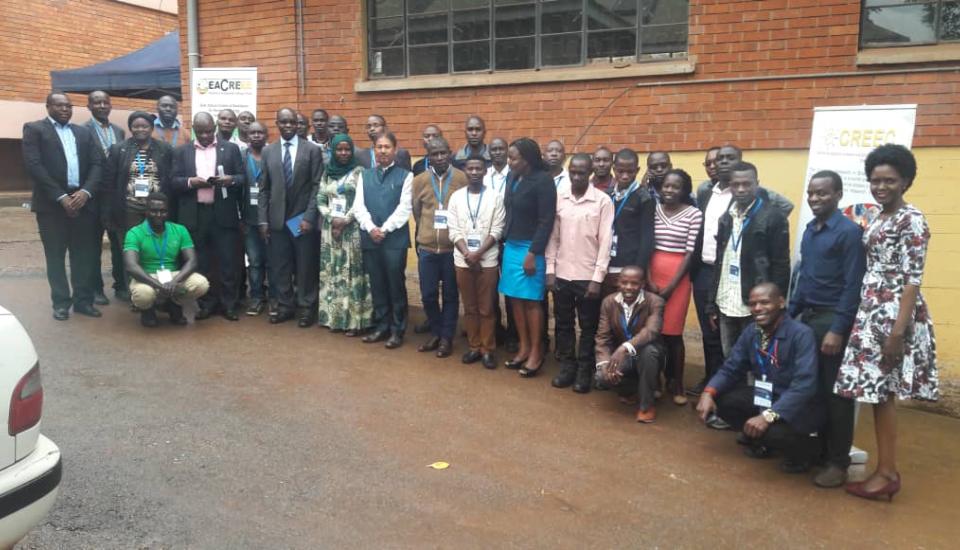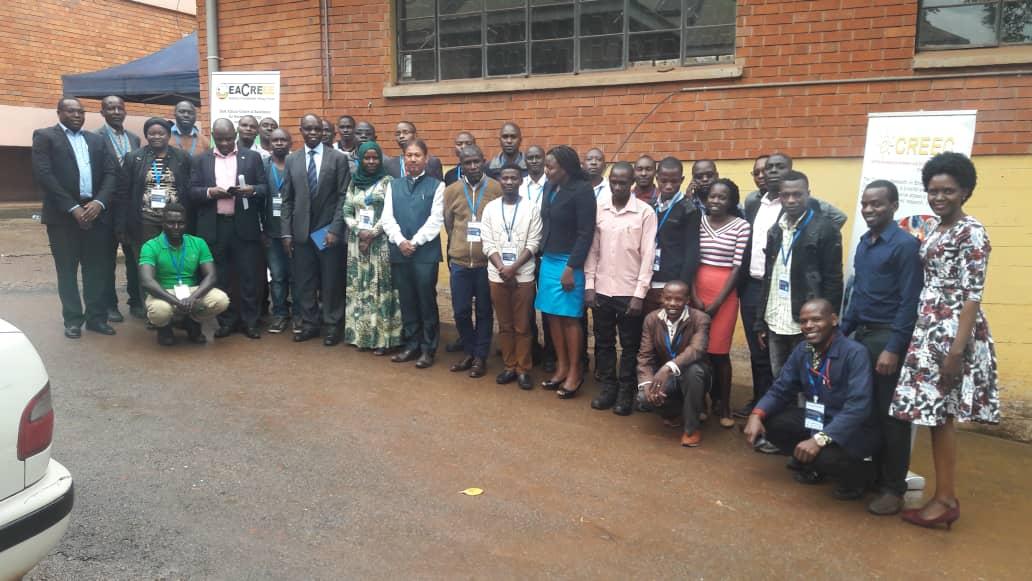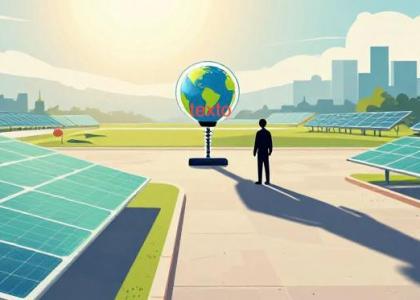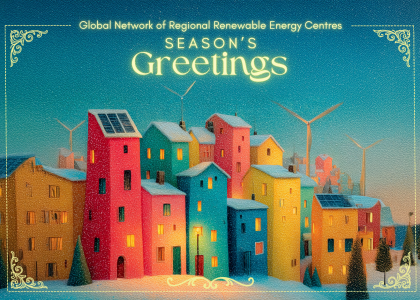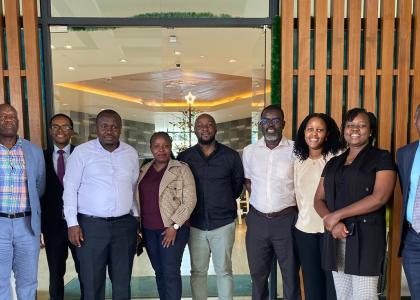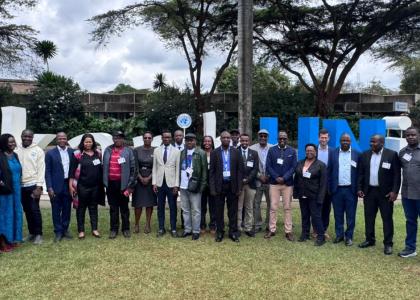Kampala, 30 September 2019: A five-day East African Regional Training Course on Development, Design, Installation and Operation of Small Hydropower Plants officially kicks off today at Makerere University, Kampala with about 30 participants from the EAC Partner States.
In her welcome remarks, Ms Mary Suzan Abbo, Managing Director, Centre for Research in Energy and Energy Conservation (CREEEC), stressed the importance providing practical skills in the design, installation and operation and maintenance of renewable energy technologies like small hydro systems – skills that are currently missing in the mainstream academic programmes. Reechoing these sentiments, Eng. Emmy Matovu, Chairman of Hydropower Association of Uganda (HPAU) noted that developing the many potential hydropower sites and running the current operating facilities requires critical mass of hands-on personal.
This training course has been organized by EACREEE in collaboration with Uganda National Renewable Energy and Energy Efficiency Alliance (UNREEEA), CREEEC, and HPAU with support from bfz, United Nations Industrial Development Organization (UNIDO) and the Austrian Development Agency (ADA). Stressing the importance on partnership, Ms Esther Nyanzi, the Chief Executive Officer of UNREEEA noted that this collaboration goes beyond Uganda as both EACREEE and UNREEEA work in close collaboration with other renewable energy associations in the region under the umbrella of the East African Renewable Energy Federation.
East Africa has enormous potential for mini-hydropower, estimated at 4GW, but only 158MW had been installed by 2015. “Scaling up the development of these potentials require correct sequencing of intervention. It is important for country to establish knowledge centers on small hydropower to conduct research and development for appropriate technologies”, emphasized Dr. Rana Pratap Sing, Industrial Development Officer at UNIDO.
Quoting from the ‘Regional Scoping Study to Identify Potential Areas for Intervention by the EAC Secretariat on Renewable Energy and Energy Efficiency’ published by the EAC Secretariat in 2015, Mr Michael Kiza, Programme management Expert at EACREEE (representing the Interim Executive Director, Dr. Mackay Okure), noted that ‘there is acute shortage of skilled small hydro personnel and in particular the almost total absence of skilled personnel with hands-on expertise, who are not only crucial for O&M of small hydro plants, but can also play a key role in rehabilitation of defunct small hydro installations as well as development of new small hydro plants.’ The objective of the course is therefore to equip participants with relevant technical skill and experience in planning, designing, developing, and operation of small hydropower plants. This is inherently expected to increase the regional generating capacity thereby accelerating rural access to electrical energy which can be efficiently sustained with competent human resource capital.
The training course consists of lectures and practical session on design and installation, operation and Maintenance of small hydropower Systems. The training will involve lectures, practical lessons and field visit that would provide content on hydro design, project development process, quality control and assurance, electro-mechanical equipment, as well as operation and maintenance of a hydropower plant.
This training course is part of a series of small hydropower capacity building programme being implemented in the region by EACREEE and other partners.

